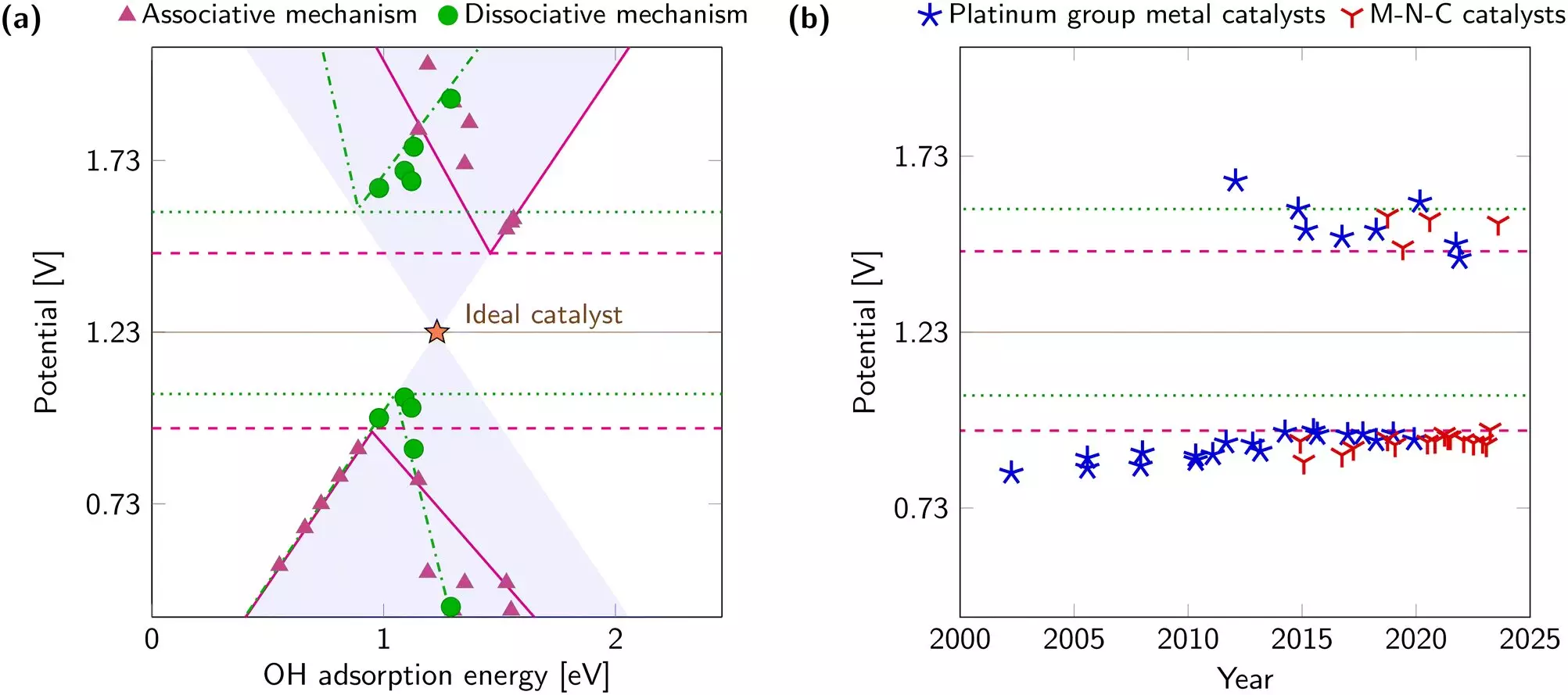In the quest for sustainable energy solutions, researchers from the Universities of Tartu and Copenhagen have proposed a groundbreaking approach to address the challenges of oxygen electrocatalysis. This innovative method aims to revolutionize the field by introducing a new concept of geometry-adaptive electrocatalysis. Traditional catalysts often struggle to lower the high activation energies required for oxygen evolution and reduction reactions, hindering progress in key energy conversion and storage systems.
The proposed approach involves catalysts that dynamically adjust their geometry during reactions, effectively bypassing long-standing theoretical limitations. By doing so, the research team believes that ideal catalysis is within reach, paving the way for significant advancements in energy efficiency. This new paradigm has the potential to double the efficiency of various technologies, such as water splitting, fuel cells, and metal-air batteries.
Lead by Ritums Cepitis, a 4th year Ph.D. student at KongiLab, the team’s findings were published in ACS Catalysis Science and Technology. According to Cepitis, this concept could revolutionize the field of oxygen electrocatalysis and accelerate the transition to a hydrogen economy. Collaborating with Prof. J. Rossmeisl and Dr. V. Ivaniscev, the team aims to translate their theoretical breakthrough into practical applications.
Dr. Ivaniscev highlights the transformative potential of this new approach, emphasizing the possibility of doubling the efficiency of energy conversion and storage technologies. The team is now focused on transitioning from theoretical modeling to laboratory experimentation, where they hope to further validate the effectiveness of their concept. Associate Professor Nadezda Kongi, leader of the Inorganic Functional Materials research group at the University of Tartu, expresses confidence in the team’s abilities to bring their innovative approach to fruition.
The future of oxygen electrocatalysis appears promising with the introduction of geometry-adaptive electrocatalysis. This paradigm shift in catalyst design has the potential to reshape the energy landscape, providing more efficient and sustainable solutions to meet growing energy demands. As researchers continue to explore innovative approaches to overcome long-standing limitations, the possibility of achieving ideal catalysis is closer than ever before.


Leave a Reply